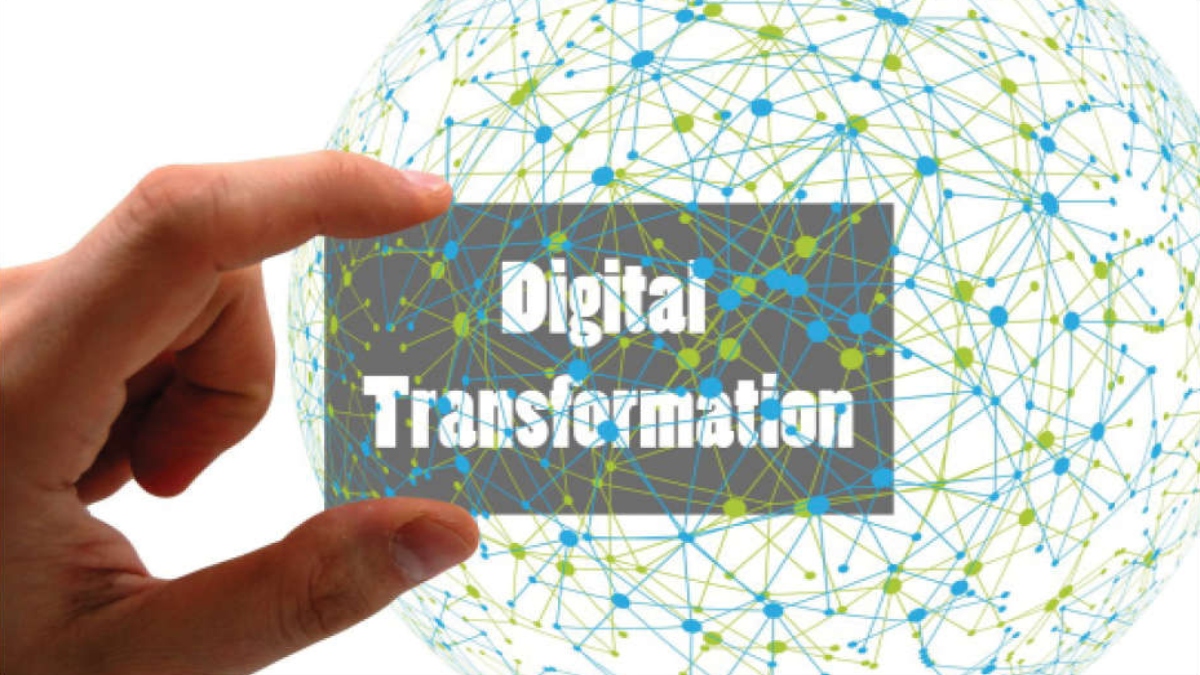The Covid-19 crisis has spurred the need for business agility, which has accelerated the need for digital technologies to play a new role—that of delivering organisation resilience. Increasingly, organisations are adopting more technologies to stay relevant and competitive, as they emerge from the effects of the pandemic, which has accelerated the pace of digital transformation across the world.
Digital transformation involves the upgrading of IT infrastructures and processes to improve speed and responsiveness, to support critical business needs. Earlier, building and implementing a technology-driven strategy and processes would take years. However, the impact of Covid-19 on businesses has spurred digital adoption, to equip employees for new ways of working and to achieve key organisational goals. Companies that have embraced this trend following the onset of the Covid-19 pandemic in 2020 have not only succeeded in enhancing their customer experience but have also strengthened their security and agility.
Below, we discuss three major technological trends that will drive digital transformation across organisations:
Democratisation of Artificial Intelligence (AI)
Across the world, organisations are rapidly adopting artificial intelligence (AI) to automate processes and drive value by making smarter business decisions, increase revenues and sales, and enhance inventory and parts optimisation. This is also creating a reference framework for organisations to follow as they continue along the path to further automation and digital transformation.
AI-driven automation is ongoing, and it will not only continue to bring substantial benefits to businesses and change the way daily work activities of every sector are undertaken, but will also present many new possibilities for growth.
Currently, this technology needs a deeper knowledge base. For accelerated digital transformation, AI democratisation is needed, which involves making data available to every person in organisations of every scale, even without any technical expertise. This can be facilitated by providing user-friendly resources and support, such as pre-built algorithms, intuitive interfaces, and high-performance cloud computing platforms.
5G Deployments
India is witnessing accelerated 5G infrastructure deployment, both in urban and rural parts of the country. This development, which is fuelled by the rising adoption of modern technologies, will, in turn, lead to increased adoption of advanced ones such as the Internet of Things, Artificial Intelligence and Robotics, across sectors. Aided by 5G, these technologies will augment operations and, thereby, improve the profitability of businesses.
By the year 2025, 5G networks are expected to cover one-third of the world’s population, opening unlimited technological possibilities through better connectivity, more reliable networks, enhanced customer experiences and quicker processes. Reap the full benefits of 5G, companies will need to invest more in network infrastructure, especially cloud service providers.
Security at the core of digital transformation
It is undeniable that incorporating digital technologies in all aspects of a company can led to significant improvements in how it operates and delivers value to customers. As organisations implement digitalisation, they are also discovering the vast potential of data, however, it can only be exploited after assessing and comprehending the full extent of its ramifications.
Digital transformations are being launched in high gear. As businesses rush to implement these technologies, security concerns may often be overlooked. In the race to achieve digital transformation, it is important for companies to build a robust security framework.
As digital transformation gains further momentum, it is vital for organisations to evaluate their security infrastructure. Safeguarding and protecting data privacy is easier to achieve when security is at the core of every aspect of digital transformation. This starts with security specialists understanding business priorities, and managers realising the role of security and its importance for the success of the business. Security should be viewed as an integral component of a company’s digital infrastructure.
As companies re-evaluate their business strategies for the upcoming fiscal year, it is important to keep up with digital transformation trends, which will assist them in developing improved and more efficient digital strategies. Lastly, organisations need to keep in mind that digital transformation is not just about selecting technologies and putting them to use, it is about aligning technologies to the company’s goals and adopting agile solutions that allow its employees to better adapt to the evolving markets. Only then will companies be able to deliver value consistently for all its stakeholders.
The writer is Head of Strategic Programs, Fujitsu’s Asia Global Delivery Centres.























